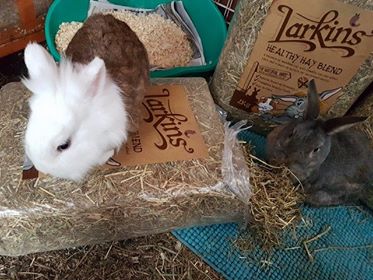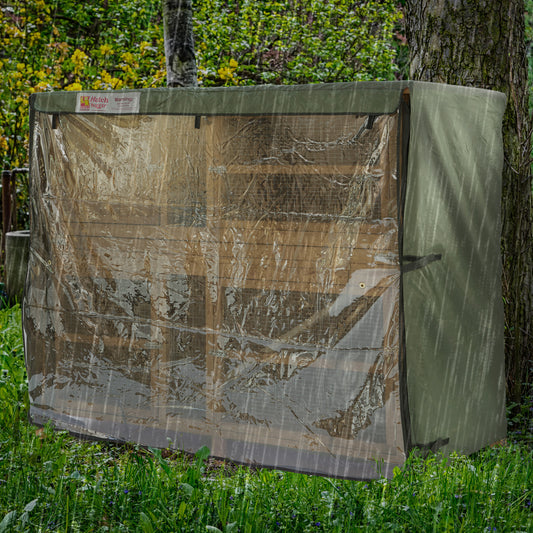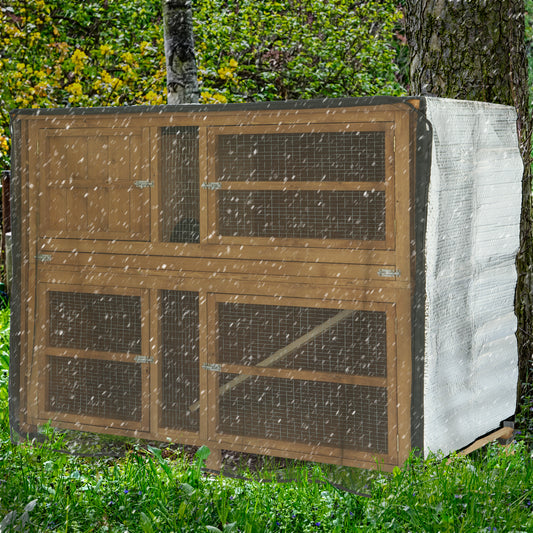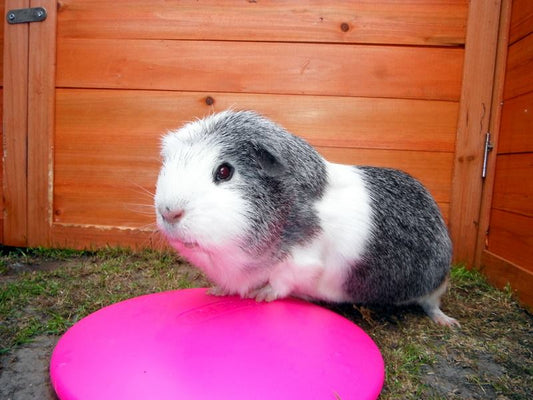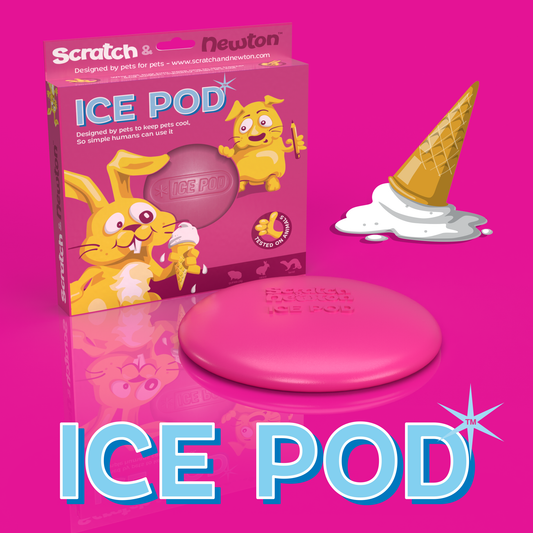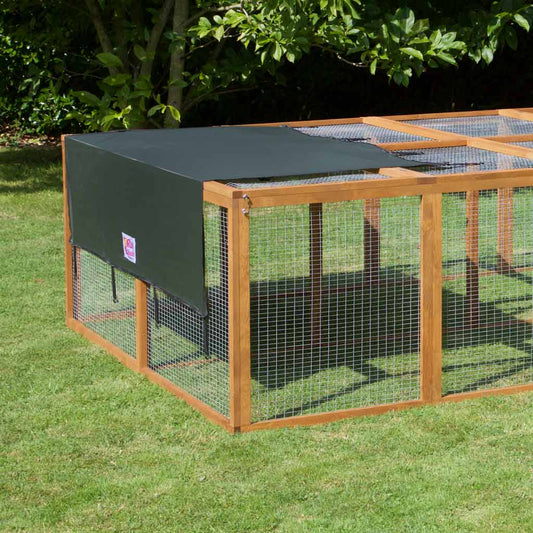Click here for more information on Larkins Healthy Hay Blend
Rabbits enjoy a healthy, balanced diet just like humans. An assortment of fresh fruit, vegetables, fresh water and hay will keep your bunny happy and healthy.
The main source of a rabbit’s diet should contain large amounts of fresh hay with clean water available. Hay is important for your rabbit as it provides fibre; it’s amazing for dental health and helps the digestive system. However rabbits, like humans, are individuals and therefore may be intolerant to certain foods.
When introducing new food, always do so slowly with one food at a time to avoid digestion upset. This way, if any new food does upset the rabbit (i.e. soft stools are produced) it can be removed immediately from the diet. Only try another food when everything has settled back to normal.
The exact quantities given often depend upon the rabbit, so you may need to test your bunny’s individual limits, as a rule an average 2.5kg rabbit should get 1.5-2.5 cups of fresh vegetables per day.
DO NOT feed your rabbits items such as crackers, pasta, pretzels, cookies etc. Chocolate is toxic to rabbits and should never be consumed.
When choosing vegetables, look for an assortment of fresh and ensure it is free from pesticides. They need to be thoroughly washed before your rabbit consumes them.
The following list is divided into sub-sections of vegetables, herbs, fruits and wild garden herbs/flowers that are deemed safe to feed rabbits, but this list is not a conclusive list and other fresh foods may also be suitable to feed to rabbits:
Vegetables:
- Artichoke leaves
- Asparagus
- Baby Sweetcorns (but not full size ones)
- Beetroot (care with leafy tops as high levels of oxalic acid)
- Broccoli (and its leaves, including purple sprouting varieties)
- Brussel Sprouts (leaves and sprouts)
- Cabbage (can sometimes cause digestive upsets)
- Carrots (and carrot tops) – the roots should be limited as they are high in sugars
- Cauliflower (and the leaves)
- Celeriac
- Celery (and its leaves)
- Chicory
- Courgette (and flowers)
- Cucumber
- Curly Kale
- Fennel
- Green beans
- Kohl rabi
- Parsnip
- Peas (including the leaves and pods)
- Peppers (red, green and yellow)
- Pumpkin
- Radish Tops
- Rocket
- Romaine lettuce (not Iceberg or light coloured leaf)
- Spinach (only occasional)
- Spring Greens
- Squash (e.g. Butternut)
- Swede
- Turnip (only occasional)
- Watercress
Herbs (often powerful tastes so may take some getting used to):
- Basil
- Coriander
- Dill
- Mint (peppermint)
- Parsley
- Oregano
- Rosemary
- Sage
- Thyme
Fruits (should be fed in moderation, due to sugar content – up to 2 tablespoons worth per day):
- Apple
- Apricot
- Banana (high in potassium)
- Blackberries (and leaves – excellent astringent properties)
- Blueberries
- Cherries
- Grapes
- Kiwi Fruit
- Mango
- Melon
- Nectarines
- Oranges (not the peel)
- Papaya
- Peaches
- Pears
- Pineapple
- Plums
- Raspberries (and leaves – excellent astringent properties)
- Strawberries (and leaves)
- Tomatoes (not the leaves)
Wild Garden Herbs/Weeds/Flowers:
- Borage
- Calendula
- Camomile

